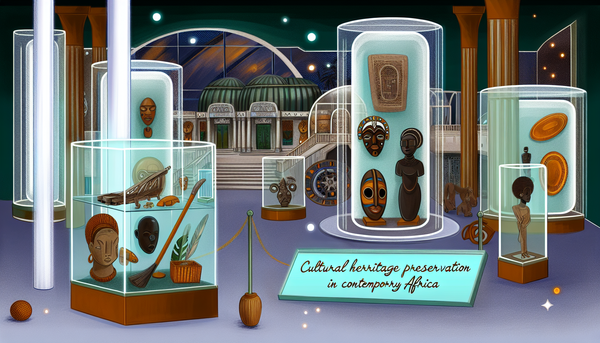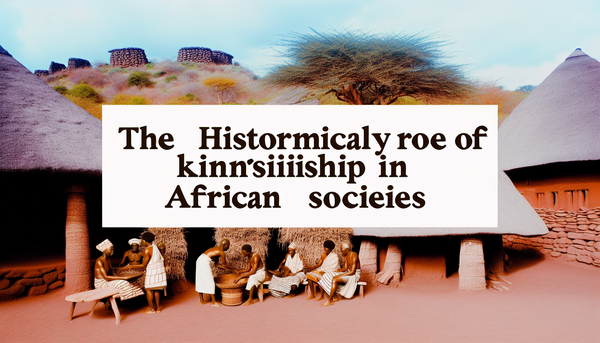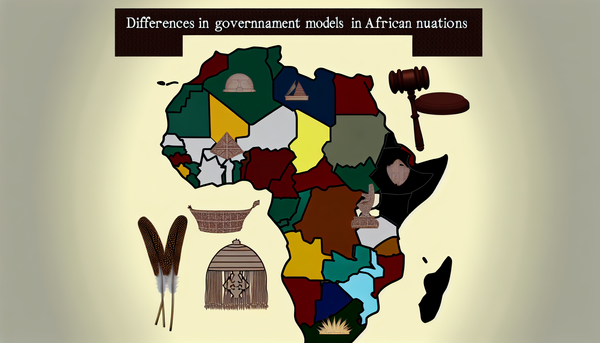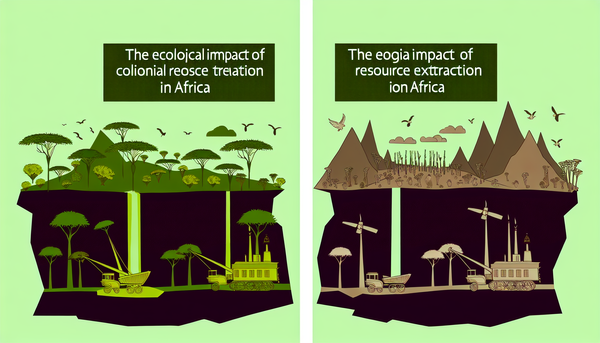The Impact of Colonial Education Policies on African Societies
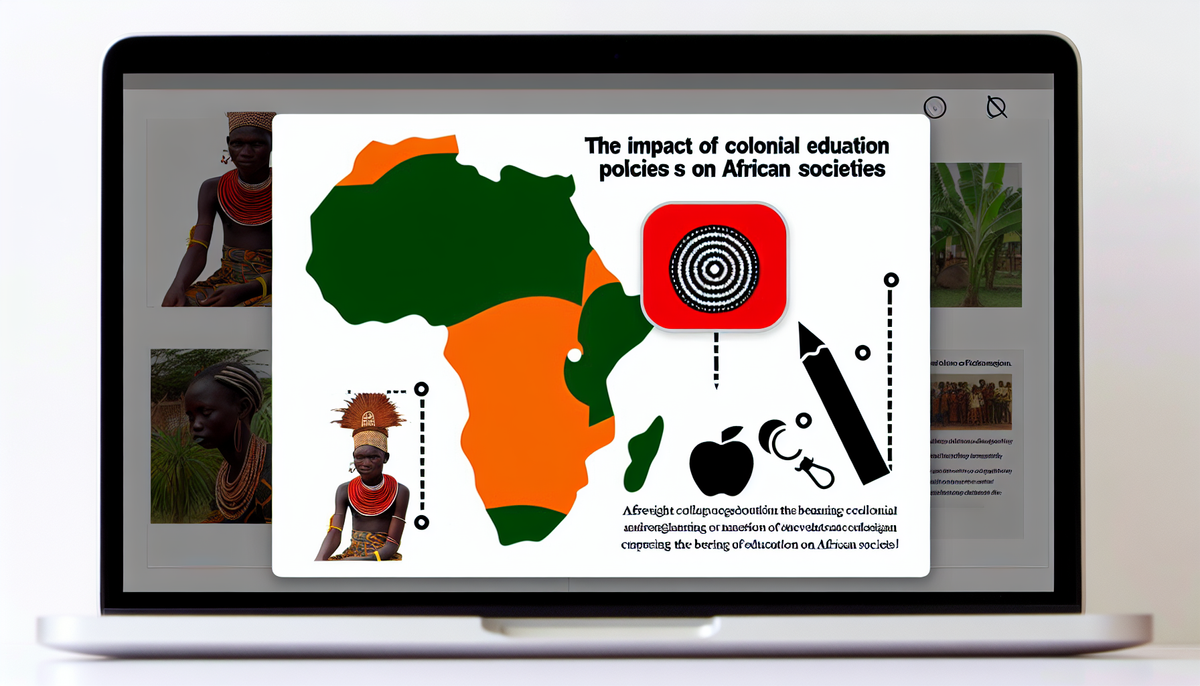
Introduction to Colonial Influence on African Education Systems
The colonial period marked a significant transformation in educational frameworks across African societies, fundamentally altering their traditional learning systems. European powers, driven by imperial ambitions, introduced new educational policies that sought to reshape the minds and behaviors of colonized populations. Rather than fostering indigenous knowledge, these policies often aimed to promote Western ideals, languages, and cultural norms.
Colonial education served multiple purposes: it was a tool for assimilation, a means of creating a skilled workforce for colonial administrations, and a method of legitimizing colonial rule. Schools were established primarily to train a small elite that could serve the colonial government, leading to significant disparities in educational access and quality. The curriculum typically emphasized subjects such as reading, writing, and arithmetic, often neglecting local histories, languages, and traditions.
As a result, the colonial education system not only disrupted established modes of knowledge transmission but also instilled a sense of inferiority regarding indigenous cultures. The legacies of these educational policies continue to reverberate today, influencing current educational practices and identity formation in many African countries. Understanding this complex history is essential to grasping modern educational challenges and societal dynamics within the continent.
Historical Overview of European Educational Interventions in Africa
The arrival of European powers in Africa during the 19th century marked the onset of extensive educational interventions across the continent. At first, missionary groups were the primary agents of education, establishing schools aimed at converting individuals to Christianity while promoting Western literacy and values. These early institutions laid the groundwork for future colonial education systems, though their focus was often on religious instruction rather than practical skills.
As colonization intensified, particularly during the Scramble for Africa, formal educational policies began to emerge from colonial administrations. Countries such as Britain, France, and Belgium implemented structured schooling systems designed to serve their administrative needs. In British colonies like Nigeria and Kenya, education was largely influenced by the British model, emphasizing English language proficiency and Western curricula, often at the expense of local languages and customs.
In French territories, the assimilation policy aimed to create Francophone Africans who identified with French culture and societal norms. This led to disparities in access to education, with urban areas typically receiving more resources than rural regions. By the mid-20th century, these interventions had established a framework that would shape educational and social structures in post-colonial African nations, reflecting the complexities of colonial legacies still felt today.
Analysis of Curriculum Changes and Their Social Consequences
The curriculum changes imposed by colonial education systems in Africa had profound social consequences, reshaping the identities and cultural perceptions of entire communities. Prior to colonial rule, education was largely informal and localized, centered around oral traditions, practical skills, and social values specific to each culture. However, with the introduction of Western curricula, emphasis shifted toward subjects that aligned with colonial interests, such as mathematics, science, and Western literature, often relegating indigenous knowledge to the periphery.
This curricular transformation aimed to cultivate a loyal populace that adhered to colonial values, portraying Western civilizations as superior while undermining local customs and beliefs. The exclusion of native languages from educational settings further eroded cultural identity, leading many individuals to internalize a sense of inferiority regarding their heritage. As a result, generations grew up distanced from their traditional practices and languages.
The long-term impact of these changes included not only a loss of cultural continuity but also increased social stratification, as access to educational resources became a marker of privilege and status. This created rifts between those educated in colonial systems and those who remained rooted in indigenous traditions. In contemporary African societies, these curriculum legacies continue to generate debates about identity, cultural preservation, and the revitalization of local knowledge systems.
The Role of Language in Shaping Cultural Identity
Language serves as a fundamental pillar of cultural identity, encapsulating the nuances of a community's heritage, history, and worldview. In the context of colonial education policies in Africa, language became a crucial battleground where cultural identities were both constructed and contested. Colonial powers often imposed their languages—such as English, French, or Portuguese—as the primary medium of instruction, leading to the marginalization of indigenous languages.
This shift not only altered everyday communication but also influenced how individuals perceived themselves and their communities. The glorification of colonial languages cultivated a sense of superiority associated with Western education, while local languages were often framed as "inferior" or "primitive." As a result, many individuals internalized these sentiments, leading to diminished pride in their linguistic heritage and cultural practices.
The repercussions of this linguistic shift have been profound. Generations may grow up disconnected from their cultural roots, losing the ability to express traditional wisdom, folklore, and values passed down orally. In modern times, efforts to reclaim indigenous languages are gaining momentum, as communities recognize the necessity of language as a vessel for cultural identity. Revitalizing native languages not only fosters pride but also strengthens societal bonds, promoting a more holistic understanding of cultural legacy in a rapidly globalizing world.
Educational Policies as Tools for Political Control
During the colonial period in Africa, educational policies were frequently employed as instruments of political control, serving to consolidate the power of colonial authorities. By regulating what could be taught and who could access education, colonial governments sought to create a compliant and skilled workforce that would serve the interests of the empire. Schools were often used to propagate colonial ideologies, instilling a sense of loyalty to the Crown while promoting a narrative that depicted colonial rule as benevolent and progressive.
The control over education also included the suppression of dissenting voices and critical thoughts. Curricula were designed to discourage any political consciousness that could challenge colonial authority. Subjects that encouraged independent thinking, such as history and social studies, were often distanced from local realities and framed to glorify the colonial mission.
Furthermore, education stratification played a key role in maintaining social hierarchies. Limited access to quality education perpetuated inequalities, ensuring that only a select few could rise to positions of influence. This system further entrenched colonial rule by dividing societies and preventing unified movements for independence. As a result, the legacy of these educational policies still echoes in contemporary political structures, shaping the dynamics of power and governance in post-colonial African states.
Comparative Study of Post-Independence Educational Reforms
Post-independence African nations have grappled with the task of reforming colonial educational systems to better reflect their cultural identities and societal needs. These reforms vary significantly across different countries, influenced by historical contexts, political ideologies, and socio-economic conditions.
In countries like Tanzania, the government implemented a radical approach with the introduction of Ujamaa (African socialism) in the 1960s, emphasizing education as a vehicle for national unity and social equity. Policies were established to promote primary education and eradicate illiteracy, while emphasizing local languages and cultures within the curriculum. This approach aimed to empower rural populations and integrate traditional values into the educational framework.
Conversely, in countries such as Kenya, educational reforms faced challenges stemming from ethnic diversity and colonial legacies. While efforts to expand access to education were evident, the medium of instruction remained predominantly English, preserving elements of the colonial system. This often led to disparities in educational quality, particularly between urban and rural areas.
Ultimately, while many African nations recognize the importance of decolonizing education, the outcomes of reforms have been mixed. The ongoing struggle to balance globalization with cultural identity reflects the complexities of building educational systems that resonate with diverse populations in a rapidly changing world.
Conclusion: Contemporary Implications and Legacies
The educational interventions implemented during the colonial era have left enduring legacies that continue to shape contemporary African societies. These historical policies—rooted in linguistic hegemony, cultural dislocation, and social stratification—have generated complex challenges that modern educational systems must navigate. As African nations strive to reclaim their cultural identities, there is a growing recognition of the need to decolonize education, emphasizing the integration of indigenous knowledge systems, languages, and cultural heritage into curricula.
Moreover, issues of access and equity remain pressing concerns in many post-colonial contexts. The disparities established under colonial rule often persist, exacerbating inequalities in educational opportunities. Current reforms must address these inequalities to foster a more inclusive, equitable educational landscape that acknowledges the diversity of languages, cultures, and experiences across the continent.
Furthermore, the globalization of education poses both opportunities and threats. While it allows for the exchange of ideas, it also risks reinforcing neocolonial ideologies if not approached critically. Ultimately, reflecting on the historical implications of educational policies is essential for understanding contemporary challenges, ensuring that the evolution of educational systems in Africa fosters authentic empowerment, social justice, and national cohesion in a globalized world.
